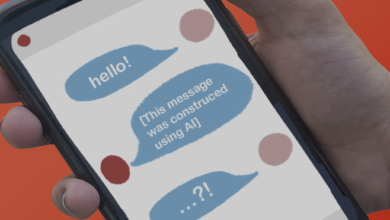The Simpson Center for the Humanities hosts Minh-Ha T. Pham, discusses artificial intelligence and fashion models | News

The Simpson Center for the Humanities hosted Minh-Ha T. Pham, an assistant professor for the graduate program in media studies from the Pratt Institute, to present the lecture “Artificial Intelligence and Fashion Models, or Business as Usual in the Global Fashion Supply Chain” May 23.
Pham’s research explores the interplay of race, gender, and fashion labor within the context of global capitalism. In her lecture, she shared her latest findings, discussing the significant implications of AI-generated models on workers in the modeling industry.
Pham’s lecture began with the stories of models Robyn Lawley, Shereen Wu, and Alex Shanklin, all of whom had their work manipulated or replicated by brands using AI-generative tools. In Lawley’s case, she discovered images of herself with digitally altered features in AI photo libraries, while Wu and Shanklin’s faces were entirely replaced and whitewashed by brands for promotional purposes.
“While much of the data that goes into creating synthetic models are scrapped from broad internet sources, AI replicas are also based on data extractions from 3D scans, photographs, and videos of specific models,” Pham said.
From a preliminary survey conducted by the Model Alliance, Pham highlighted that 18% of models reported being asked to undergo body and facial scans by their agencies without disclosing how they use them. Thus, many models are unaware that agencies use their work for AI without explicit consent.
“It’s possible we see model agencies sign fewer models and renew fewer contracts but continue to license their model’s data to fashion companies,” Pham said.
While many have urged for greater intellectual property laws to protect these workers, Pham argues that they do not correspond with the realities of modeling.
As models sign with model agencies, they relinquish significant ownership rights to their agencies. Pham stated that intellectual property laws only increase agencies’ power over their models, resulting in the devaluing and outsourcing of their labor to fashion companies.
The lecture ended with Pham emphasizing the importance of recognizing and elevating these workers.
“We have to listen to workers because workers know better,” Pham said, “They know best, they know better, and they certainly know better than these laws.”
Reach reporter Elizah Lourdes Rendorio at news@dailyuw.com X: @elizahlourdes
Like what you’re reading? Support high-quality student journalism by donating here.



